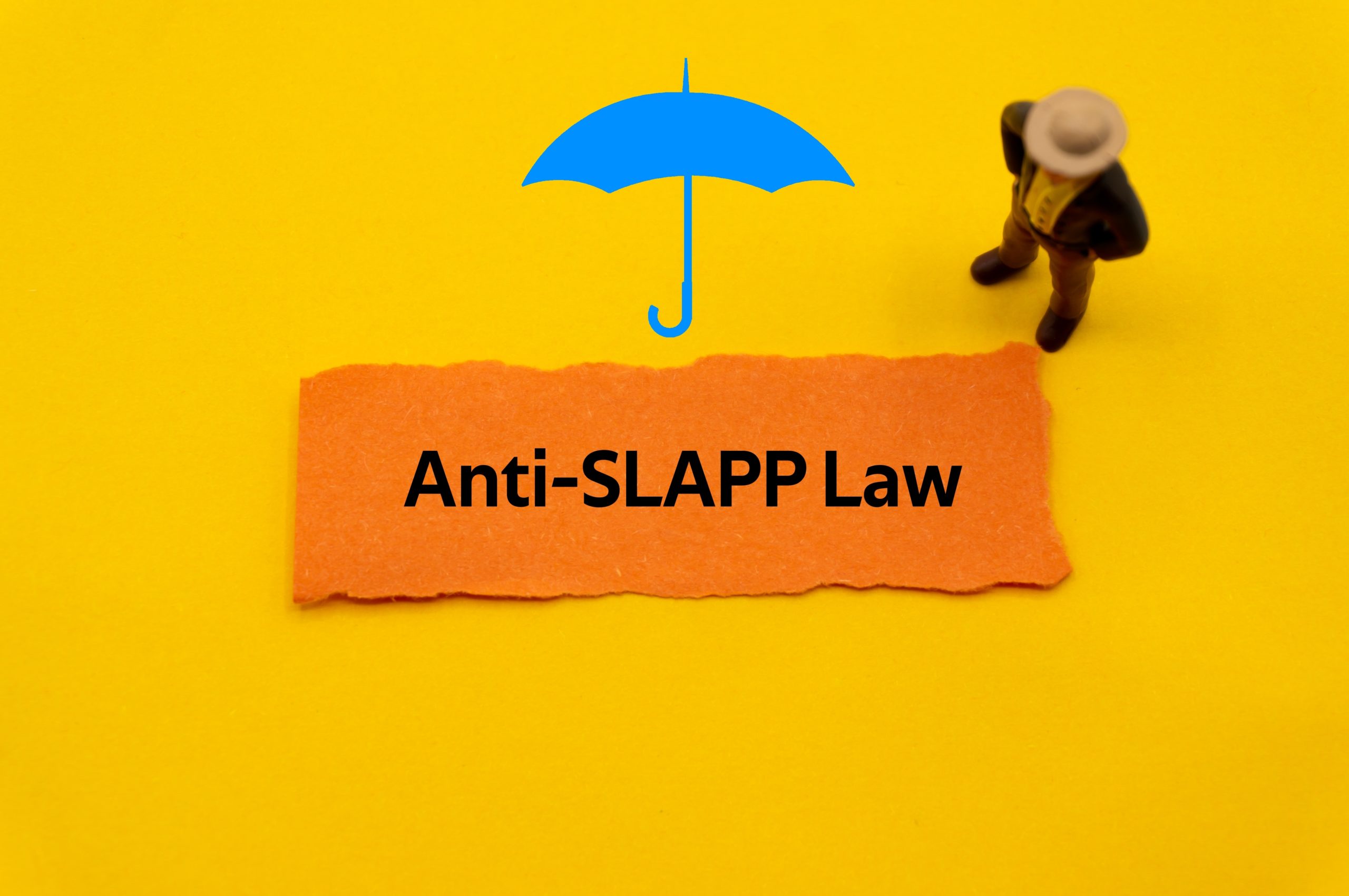
8 February 2023
|Insight
Professional Misconduct / Regulatory
Misconduct and Regulatory Matters
Professional misconduct considerations in ‘SLAPP’ legal actions
Written by: Lucas Nacif
Strategic Lawsuits against Public Participation (“SLAPPs”) are regarded as an abusive form of litigation used to harass or intimidate another party who could be holding the Claimant to account for their actions and thereby discouraging scrutiny of matters in the public interest. SLAPP litigation is commonly used to prevent the publication of matters of public importance (e.g. investigative journalism) and commonly involves defamation, invasion of privacy or breach of confidence claims being brought (or threatened).
SLAPP litigation has recently been in the headlines because of a heightened understanding of its prevalence. A notable example is Nadhim Zahawi’s lawyers sending a purported “without prejudice” letter to Dan Neidle (former Clifford Chance partner) threatening to bring libel proceedings for investigating Nadhim Zahawi’s tax affairs (see article here). More recently, the law firm Discreet Law was criticised for representing Yevgeny Prigozhin, founder of Russia’s mercenary force Wagner Group, in bringing a libel claim against a journalist for reporting his links to the mercenary group (see article here).
The Financial Times reported on 30 January 2023 that Nadhim Zahawi’s tax scandal (and his use of lawyers to try and stifle Dan Neidle’s investigative journalism) raises significant policy questions about SLAPP litigation and the extent to which such tactics are in the public interest. As Dan Neidle stated in the Financial Times, SLAPP litigation is an example of a “David vs Goliath” battle, in which “when Goliath picks on David, Goliath will almost always win” (see article here).
Engaging in SLAPP litigation doesn’t simply pose reputational risks for law firms and SRA-regulated individuals. It could potentially give rise to professional regulatory sanctions. This blog explores the potential disciplinary risks that SRA-regulated firms and individuals may become subject to if they choose to engage in SLAPP litigation.
SRA Warning Notice against SLAPP litigation
The SRA issued a warning notice on 28 November 2022 for all SRA-regulated firms and individuals who conduct litigation and provide pre-action advice. The purpose of the warning notice was to address the public concern behind SLAPP litigation and remind SRA-regulated individuals of potential professional misconduct issues in engaging in such conduct.
As set out in the SRA warning notice, SRA-regulated individuals are required to comply with the SRA Principles at all times (such as acting in a way that upholds public trust and confidence in the profession and acting with honesty, integrity and independence), as well as the relevant paragraphs of the Code of Conduct for Solicitors and the Code of Conduct for Firms. In particular, solicitors must not “abuse [their] position by taking unfair advantage of clients or others” and must ensure they are “[o]nly making assertions or putting forward statements, representations or submissions to the court or others which are properly arguable”.
The SRA identified the following “red flags” or features commonly associated with SLAPPs:
-The target is a proposed publication on a subject of public importance, such as academic research, whistle-blowing, or investigative journalism;
-Your instructions are to act solely in a public relations capacity, eg responding to pre-publication correspondence with journalists about a story which is untrue and does not relate to private information; and
-The client asks that the claim is targeted only against individuals (where other corporate defendants are more appropriate), is brought under multiple causes of action or jurisdictions unconnected with the parties or events.
In addition, the following behaviours are commonly associated with SLAPPs:
-Seeking to threaten or advance meritless claims, including at pre-action stage;
-Claiming remedies to which the client would not be entitled on the facts;
-Making unduly aggressive and intimidating threats, such as threats which are intended to threaten the other side into not seeking legal advice;
-Sending an excessive number of letters which are disproportionate to the issues in dispute and the responses received;
-Sending correspondence with restrictive labels (eg ‘without prejudice’) that are intimidating but inaccurate; and
-Pursuing unnecessary and onerous procedural applications, intended to waste time or increase costs, such as for excessive disclosure.
The SRA reminds regulated persons that they are expected to identify proposed courses of action (including at a pre-action stage) that could be defined as SLAPPs or otherwise abusive and to decline to act in this way.
The SRA states that failing to have proper regard to their warning notice may result in disciplinary action.
Concluding thoughts
The SRA Warning Notice is an important reminder that engaging in abusive conduct in litigation may result in professional disciplinary action by the regulator. Regulated persons, when advising clients at pre-action or litigation stage, should take heed of the SRA warning notice. We think the risk of engaging in SLAPP litigation is particularly high when advising clients on defamation and privacy claims, particularly where the defendant is an individual journalist or whistle-blower seeking to hold the claimant to account.
In light of the Government’s hawkish stance against Russia following their invasion of Ukraine in February 2022, and their increased interest in tackling SLAPP litigation (see article here), we anticipate that the SRA will adopt a more interventionist stance in taking regulatory action against SRA-regulated firms and individuals that engage in SLAPP litigation.
February 2023









